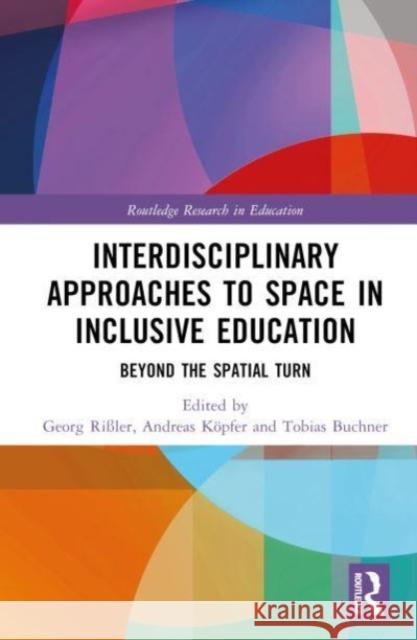Interdisciplinary Approaches to Space in Inclusive Education » książka
topmenu
Interdisciplinary Approaches to Space in Inclusive Education
ISBN-13: 9781032321332 / Twarda / 2023 / 232 str.
Interdisciplinary Approaches to Space in Inclusive Education
ISBN-13: 9781032321332 / Twarda / 2023 / 232 str.
cena 754,51
(netto: 718,58 VAT: 5%)
Najniższa cena z 30 dni: 654,86
(netto: 718,58 VAT: 5%)
Najniższa cena z 30 dni: 654,86
Termin realizacji zamówienia:
ok. 16-18 dni roboczych.
ok. 16-18 dni roboczych.
Darmowa dostawa!
This timely, edited volume brings together interdisciplinary perspectives on space and spatiality in inclusive education discourses.











